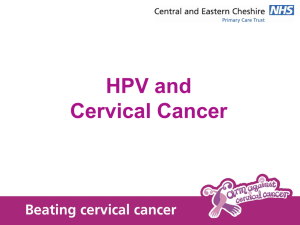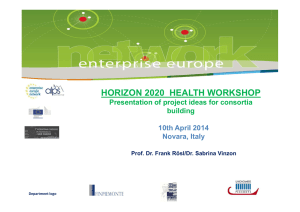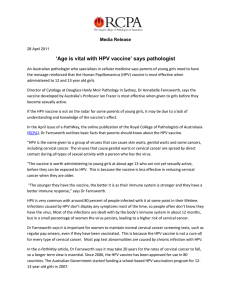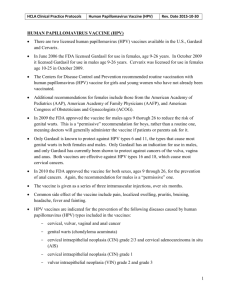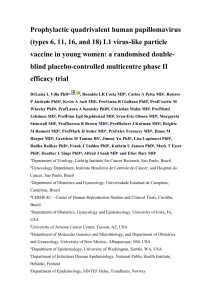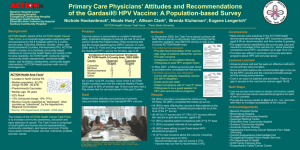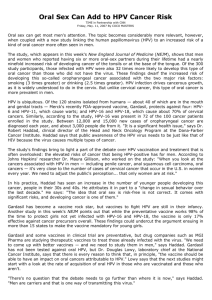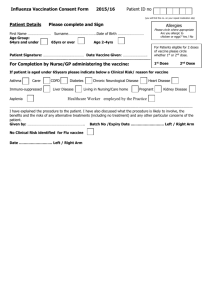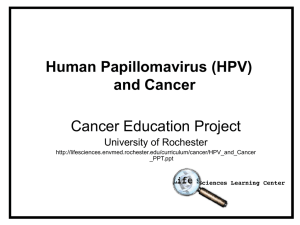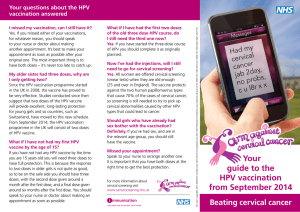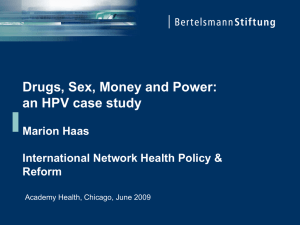Children and Specialist Services Phone: 01743 450800 Dear Parent
advertisement
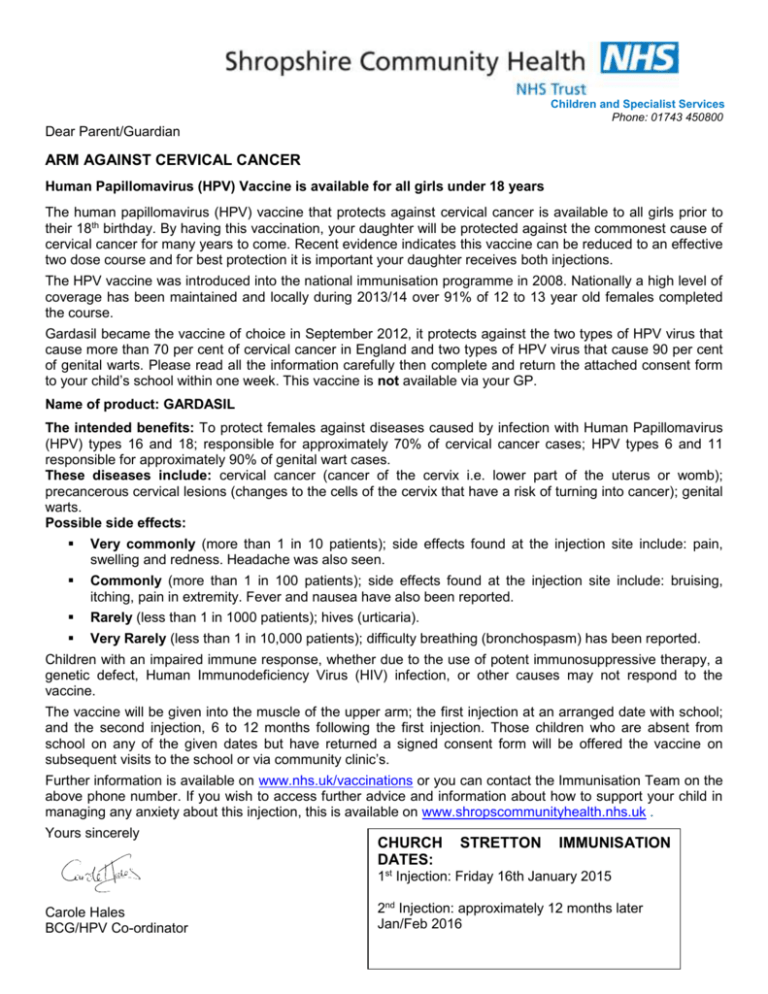
Children and Specialist Services Phone: 01743 450800 Dear Parent/Guardian ARM AGAINST CERVICAL CANCER Human Papillomavirus (HPV) Vaccine is available for all girls under 18 years The human papillomavirus (HPV) vaccine that protects against cervical cancer is available to all girls prior to their 18th birthday. By having this vaccination, your daughter will be protected against the commonest cause of cervical cancer for many years to come. Recent evidence indicates this vaccine can be reduced to an effective two dose course and for best protection it is important your daughter receives both injections. The HPV vaccine was introduced into the national immunisation programme in 2008. Nationally a high level of coverage has been maintained and locally during 2013/14 over 91% of 12 to 13 year old females completed the course. Gardasil became the vaccine of choice in September 2012, it protects against the two types of HPV virus that cause more than 70 per cent of cervical cancer in England and two types of HPV virus that cause 90 per cent of genital warts. Please read all the information carefully then complete and return the attached consent form to your child’s school within one week. This vaccine is not available via your GP. Name of product: GARDASIL The intended benefits: To protect females against diseases caused by infection with Human Papillomavirus (HPV) types 16 and 18; responsible for approximately 70% of cervical cancer cases; HPV types 6 and 11 responsible for approximately 90% of genital wart cases. These diseases include: cervical cancer (cancer of the cervix i.e. lower part of the uterus or womb); precancerous cervical lesions (changes to the cells of the cervix that have a risk of turning into cancer); genital warts. Possible side effects: Very commonly (more than 1 in 10 patients); side effects found at the injection site include: pain, swelling and redness. Headache was also seen. Commonly (more than 1 in 100 patients); side effects found at the injection site include: bruising, itching, pain in extremity. Fever and nausea have also been reported. Rarely (less than 1 in 1000 patients); hives (urticaria). Very Rarely (less than 1 in 10,000 patients); difficulty breathing (bronchospasm) has been reported. Children with an impaired immune response, whether due to the use of potent immunosuppressive therapy, a genetic defect, Human Immunodeficiency Virus (HIV) infection, or other causes may not respond to the vaccine. The vaccine will be given into the muscle of the upper arm; the first injection at an arranged date with school; and the second injection, 6 to 12 months following the first injection. Those children who are absent from school on any of the given dates but have returned a signed consent form will be offered the vaccine on subsequent visits to the school or via community clinic’s. Further information is available on www.nhs.uk/vaccinations or you can contact the Immunisation Team on the above phone number. If you wish to access further advice and information about how to support your child in managing any anxiety about this injection, this is available on www.shropscommunityhealth.nhs.uk . Yours sincerely CHURCH DATES: STRETTON IMMUNISATION 1st Injection: Friday 16th January 2015 Carole Hales BCG/HPV Co-ordinator 2nd Injection: approximately 12 months later Jan/Feb 2016

